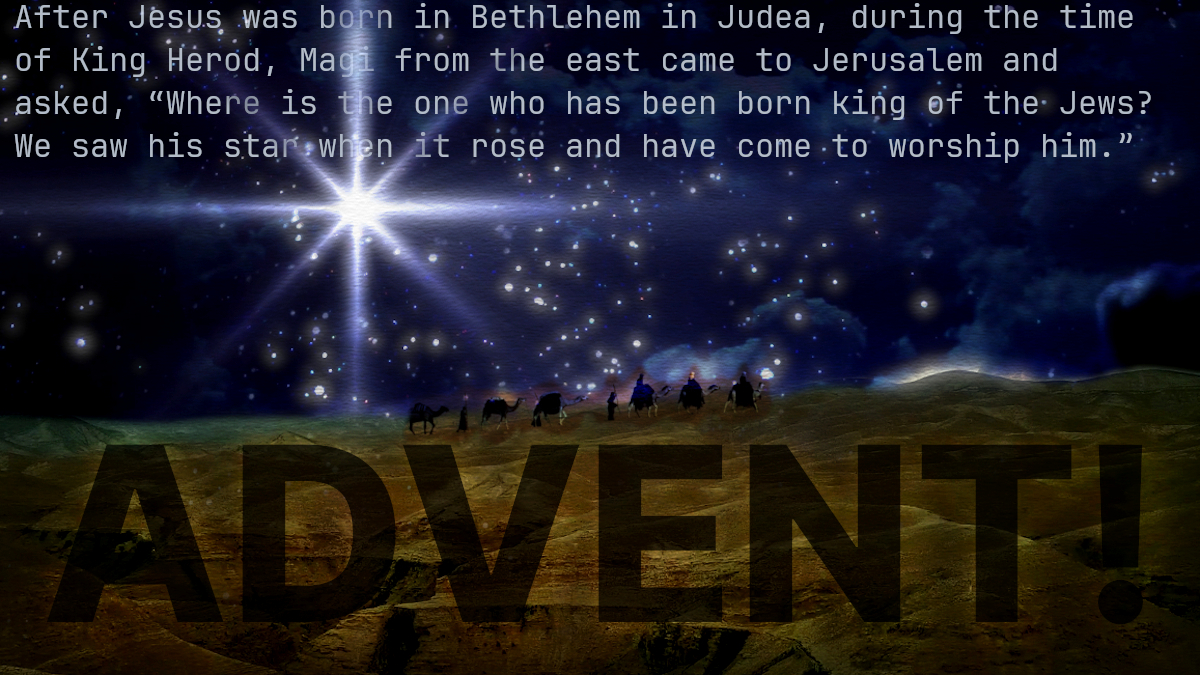ADVENT declares the unspeakable: God chose to become one of us in Jesus. He gave up his claim on the power and protection of heaven to be mortal for us and with us. This did not make Jesus less than God but made God more accessible for us as humans as we await sharing with the Lord Jesus in his glory (Philippians 2:6-11; Colossians 4:1-3). This Incarnation of God in human flesh was God's plan and was declared by the prophets:
All this took place to fulfill what the Lord had said through the prophet: "The virgin will conceive and give birth to a son, and they will call him Immanuel" (which means "God with us") (Matthew 1:22-23).
Jesus came as God and was the bodily Incarnation of God's message, his word, about himself. Do you want to know how God would live among people? Look to Jesus! Do you want to know how God would react to those with leprosy, blindness, illness, fear, failure, and death? See how Jesus responded to these kinds of people and all sorts of difficult situations. Jesus, born in a manager, welcomed by shepherds, brought gifts by the magi, and protected by Joseph, is God's word among us:
The Word became flesh and made his dwelling among us. We have seen his glory, the glory of the one and only Son, who came from the Father, full of grace and truth.For the law was given through Moses; grace and truth came through Jesus Christ. No one has ever seen God, but the one and only Son, who is himself God and is in closest relationship with the Father, has made him known (John 1:14, 17-18).
Why is this important?
Advent brings us confidence that we can find grace and help in the presence of God because Jesus has been one of us:
Since the children have flesh and blood, he too shared in their humanity so that by his death he might break the power of him who holds the power of death - that is, the devil - and free those who all their lives were held in slavery by their fear of death. For surely it is not angels he helps, but Abraham's descendants. For this reason he had to be made like them, fully human in every way, in order that he might become a merciful and faithful high priest in service to God, and that he might make atonement for the sins of the people. Because he himself suffered when he was tempted, he is able to help those who are being tempted (Hebrews 2:14-18).
Therefore, since we have a great high priest who has ascended into heaven, Jesus the Son of God, let us hold firmly to the faith we profess. For we do not have a high priest who is unable to empathize with our weaknesses, but we have one who has been tempted in every way, just as we are - yet he did not sin. Let us then approach God's throne of grace with confidence, so that we may receive mercy and find grace to help us in our time of need.(Hebrews 4:14-16).
ADVENT brings us confident hope because God knows what it is like for us - not just because he is God and knows all things but also because he has been Immanuel and experienced it as one of us. Such a God is simply breathtaking. Mary placed him in a manger and loved him as a boy and wept when he was crucified and rejoiced when he was raised so we could know God's love, too!













Comments
Have thoughts on this article? Leave a comment